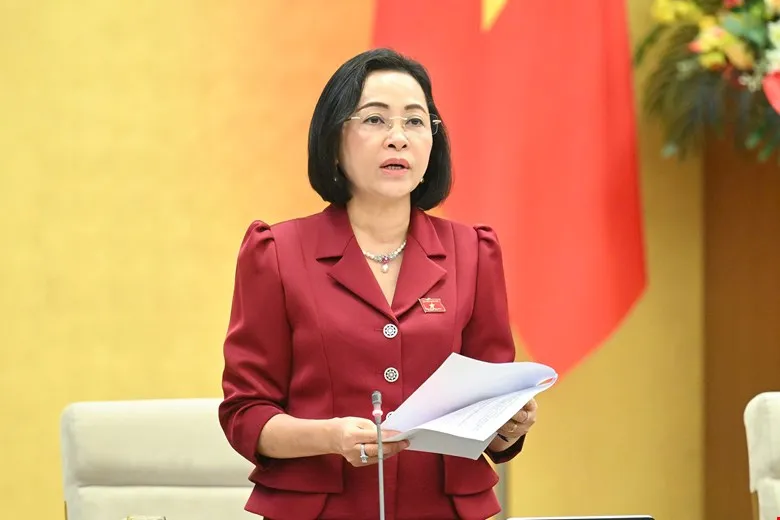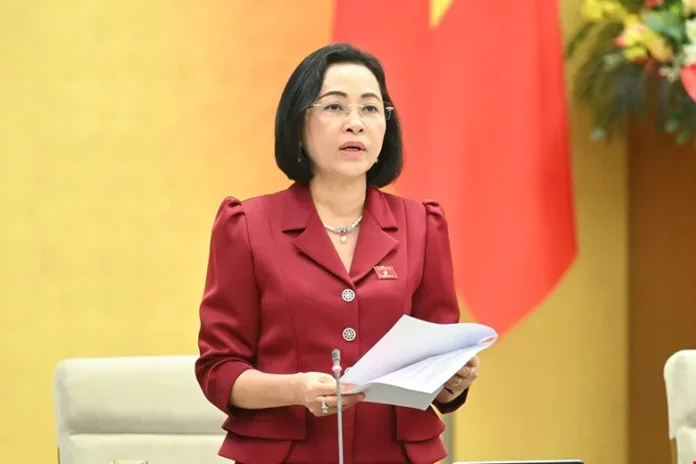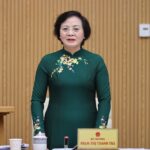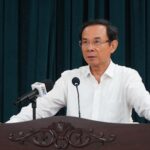
Guidance 1309 ensures the smooth operation of local government with immediate personnel adjustments and organizational structure improvements following the establishment of new administrative units.
The National Assembly Standing Committee’s Resolution appoints key positions within the Provincial People’s Councils, including Chairpersons and Vice-Chairpersons, immediately after the National Assembly’s Resolution on administrative unit rearrangement takes effect.
The Provincial People’s Councils will issue resolutions to appoint members of the Provincial People’s Committees and leadership positions within the People’s Councils and People’s Committees of the newly formed administrative units at the communal level.
The Communal People’s Councils will then appoint members of the Communal People’s Committees for the newly formed administrative units.
Based on the approved personnel plan by the competent authorities, the Provincial Party Committee Standing Boards in the merged/consolidated provinces/cities will promptly notify, urge, and direct the Provincial People’s Councils and Communal People’s Councils to complete the appointment and reorganization of local government leadership positions within their authority.
According to the above guidance, the 15th National Assembly delegations in the rearranged provinces/cities will comprise all delegates from the former administrative units. The structure includes a head, deputy heads, and delegates. Notably, the number of full-time delegates remains unchanged.
Similarly, the Provincial People’s Councils in the rearranged provinces/cities will function with the same number of delegates, Standing Boards, Committees, and delegate groups as before. The number of Vice-Chairpersons, Committee Chairpersons, and Vice-Chairpersons in full-time positions will also be maintained from the pre-rearrangement administrative units.
The National Assembly Standing Committee will make immediate appointments to the aforementioned positions once the administrative unit rearrangement resolution takes effect. The Provincial People’s Councils will continue to issue resolutions to appoint the remaining positions, such as members of the Provincial People’s Committees and Vice-Chairpersons of the Provincial People’s Councils, within their authority.
The National Assembly Standing Committee will make immediate appointments to key positions following the effectiveness of the administrative unit rearrangement resolution.
Regarding the organization of the Office of the National Assembly Delegation and the Provincial People’s Council after the rearrangement, the guidance requires that the merger must maintain the original organizational structure. After reaching an agreement with the Head of the Delegation and the Standing Board of the Provincial People’s Council, the provinces/cities will establish a new Office by merging the old ones.
The position, tasks, and organizational structure of the Office shall comply with Resolution No. 1004/2020/UBTVQH14. The leadership personnel, including the Chief of Office and Deputy Chiefs, will be appointed after obtaining consensus from the Provincial People’s Council Standing Board.
At the time of rearrangement, the number of Deputy Chiefs may exceed the regulations, but it must be adjusted within five years (by July 1, 2030) to conform to the current provisions.
For the Communal People’s Councils in the 2021-2026 term, the newly formed wards/ communes will comprise delegates from various sources: delegates from the former communal People’s Councils, district-level People’s Council delegates elected in the new commune’s territory, or those working in that area.
The District-level People’s Councils will be responsible for reviewing and proposing appropriate delegate arrangement plans to ensure representativeness and reasonable composition. The Provincial People’s Council Standing Boards will decide on the appointment of delegates from these special groups. The new communal delegates will serve until the end of the 2021-2026 term, ensuring continuity and succession.
In this guidance, the National Assembly Standing Committee also requests that localities promptly implement the personnel plans approved by the competent authorities. The Provincial Party Committee Standing Boards in provinces/cities with new administrative units are responsible for vigorously directing the completion of personnel arrangements at all levels of local government, ensuring stable operations immediately after the rearrangement resolution takes effect.
“Proposal to Reduce the Registration Fee for Motorcycles in Hanoi, Ho Chi Minh City, and Other Cities from 5% to 2%”
The Ministry of Finance is seeking feedback on a draft decree amending and supplementing a number of articles of the Government’s Decree No. 10/2022 on the collection of registration fees.
The Ultimate Guide to the 52 Provincial-Level Administrative Units of Vietnam
As of now, the country has reorganized its administrative units, resulting in 52 provincial-level divisions (with 23 remaining as provinces). The final goal is to have 34 provinces and centrally-controlled municipalities. Additionally, there have been significant changes at the communal level, with the reorganization of 10,035 communal-level units, leaving 3,321, which is a remarkable 67.9% achievement.
A New Ho Chi Minh City is Taking Shape
I can also offer some additional suggestions or provide a full article if you wish to expand on this.
“Ho Chi Minh City faces an enormous workload, and time is of the essence. There’s no room for hesitation or delay; the city’s officials must act swiftly and decisively to tackle the challenges ahead.”





















